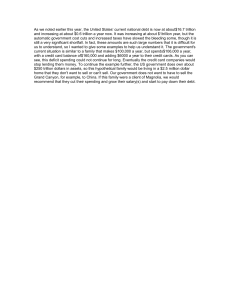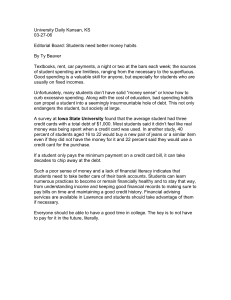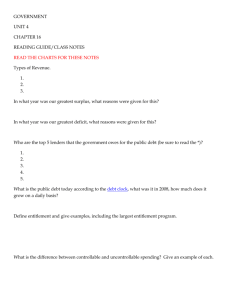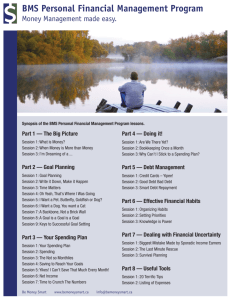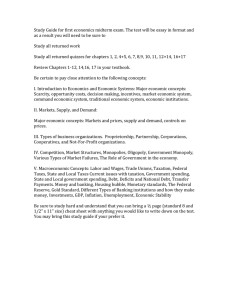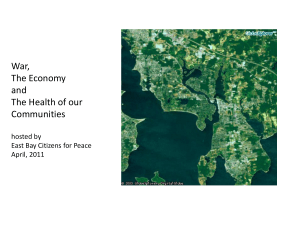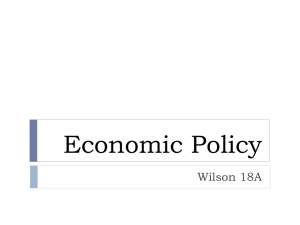Some Ideas on Future Economic Directions S Darren Hudson
advertisement
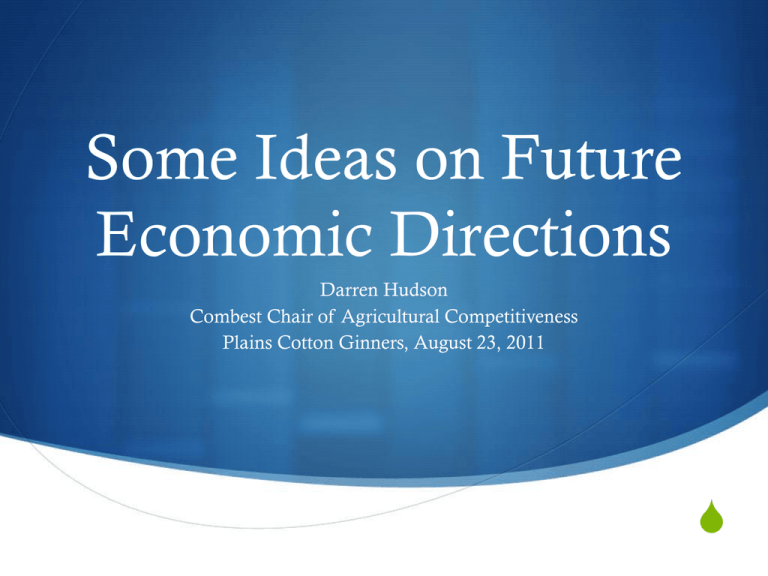
Some Ideas on Future Economic Directions Darren Hudson Combest Chair of Agricultural Competitiveness Plains Cotton Ginners, August 23, 2011 S Introduction S Debt deal S Inflation S Farm Program Implications Debt Deal S Raises borrowing limit of federal government S Purports to cut “spending” by roughly $1 trillion now plus $1.5 trillion by end of year S OK…but: S Federal budget deficit projected at $10 trillion over 10 years S Debt deal would only reduce that to $7.5 trillion of additional debt over next 10 years S&P Downgrade S Why? S Not current debt…focused on the realistic potential of reducing debt-to-GDP ratio over the next 10 years. S “Spending” a problem…but gap between revenues in spending is THE problem. S Implications? S Short-run—not too much other than the volatility in the market as traders try to reposition S Longer-run—could result in higher borrowing costs “Debt” vs. “Fiscal Gap” Future Obligations Future Receipts 100% 90% 80% 70% Current Debt 60% Defense, Ag, Etc. 50% 40% 30% 20% 10% 0% Social Security Healthcare 100% 90% 80% 70% 60% 50% 40% 30% 20% 10% 0% What we are talking about. Fiscal Gap Other Taxes Corporate Tax SS Tax Personal Tax What we should be talking about. Closing the Gap S Cannot be done with spending cuts only S Must include additional tax revenue S More taxes vs. economic growth S Expect serious challenges if not an outright slashing of farm programs Inflation?? Inflation?? Farm Policy Implications S Farm programs are “low hanging fruit” in the budget battle. S Small constituency among an increasingly urban legislature S Not mandatory S Eyes on direct payments S Transparent; easy political target S With high prices, the only real source of cash for deficit reduction (except crop insurance) Options Being Discussed S Revamping ACRE S Cotton Council asking for a layered approach with area insurance and ACRE of some sort S Shoring up SURE S How to handle “shallow losses” S Modifying crop insurance Conclusions S Budget situation is quite dire S Severely limits options with discretionary spending S Likely to see significant changes in discretionary spending such as farm programs (may even see significant changes in entitlement spending)
